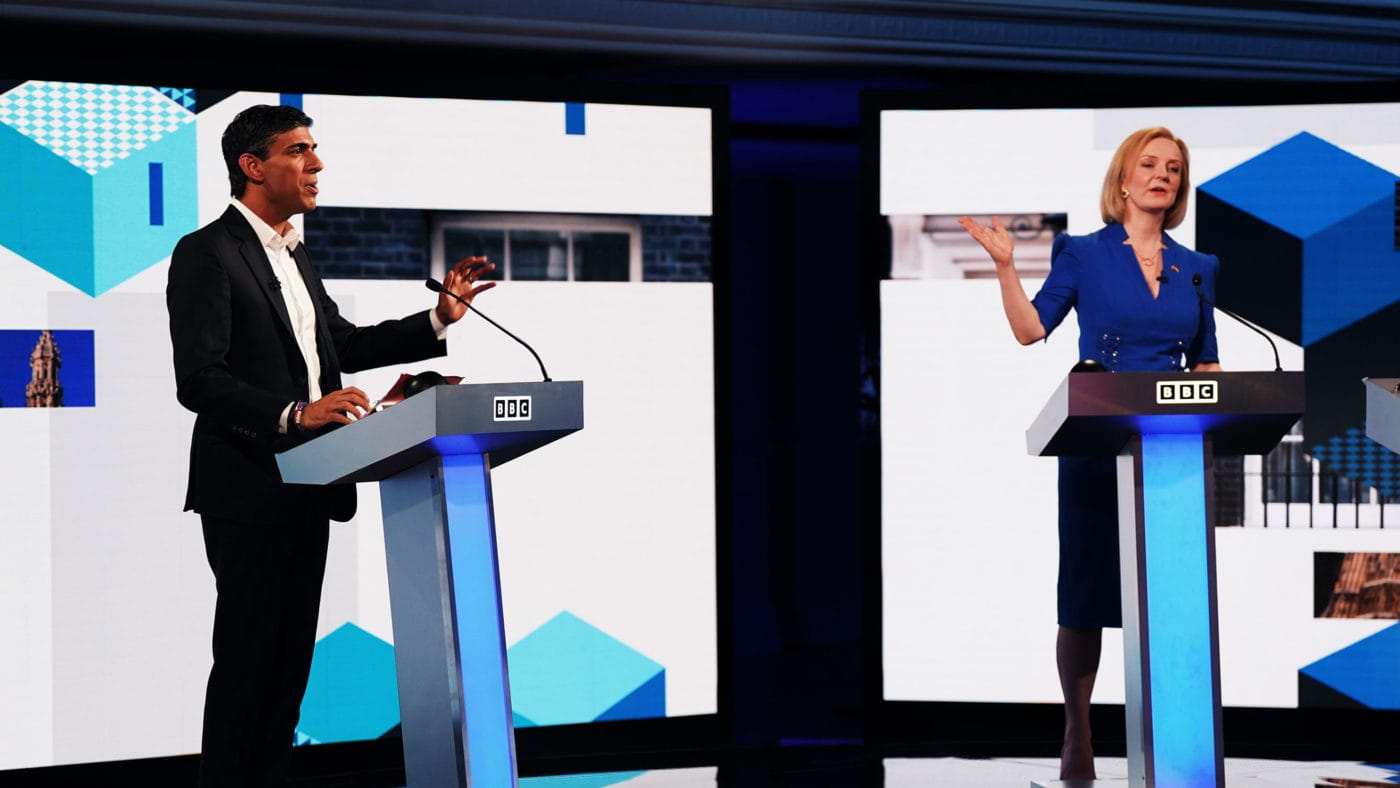If the polls are to be believed, Liz Truss has a sizeable lead over Rishi Sunak and will be PM if she can protect it for a week or so until ballot papers go out to members.
Now, polling party members is a tricky business: the 2019 polls got the winner right, but did seem to skew a little to the right – the last two YouGov member surveys gave Boris Johnson a wider 74% to 26% lead, compared to an eventual winning margin of 66% to 34% against Jeremy Hunt. Truss benefits from the campaign narrative because MPs and the media reasonably believe the polls are more likely to be right than wrong. Cabinet ministers and former contenders are now declaring for Truss, and some thought more likely to favour Sunak have remained neutral.
The fact Truss is leading the polls has led some observers to ask once more whether this is proof that the Conservatives are not ‘ready’ for a minority candidate. But there is clear and compelling evidence that his ethnicity cannot be the primary explanation of Truss’ lead over Sunak.
Indeed, membership polling showing Liz Truss leading Rishi Sunak also shows that Kemi Badenoch was, by the end of the parliamentary stage, preferred by the members to either candidate who made the ballot. If skin colour was decisive, this would be impossible.
After all, Sunak’s reputation with both the general public and Tory members soared far ahead of any other members of the Government during the pandemic. A February 2022 YouGov poll showed that members saw Sunak as having both stronger leadership credentials and more electoral appeal than Boris Johnson – and placed him ahead of Liz Truss in a hypothetical leadership contest.
Rishi Sunak’s ethnicity has not changed in the last six months – but the economy has. He suffered one of the sharpest reputational hits of any leading politician in modern times in April – a triple-whammy of a (rather unfair) Covid fine, intense scrutiny over his green card and his wife’s non-dom status, and intense pressure over the Government’s response to the rising cost of living.
Sunak’s decision to resign – helping to force Boris Johnson’s departure – has also been polarising inside the party. A vocal third of members wanted Johnson to stay on – though most thought it was time for him to go. Sunak’s strategic error may have been that he did not act sooner. As for the wider public, Truss and Sunak are now about neck-and-neck, which dents Sunak’s core claim that he is clearly the more electable candidate.
It’s not just about members either. Conservative MPs can and have repeatedly voted for female and ethnic minority candidates: indeed, most of them voted for an ethnic minority (185) or female candidate (188) in the first round of the leadership contest. Actual selection votes for parliamentary candidates show that party members can do the same. William Hague’s Yorkshire Day video endorsement of Rishi Sunak tells the story of how grassroots Conservatives in rural England went into the selection meeting expecting to prefer the candidate with the strongest local roots, or with military connections, and came out of the meeting swayed by the British-Indian candidate from faraway Southampton.
Each of the 21 ethnic minority Conservative MPs had to win a selection race against white British contenders. The Conservative party membership is 96% white and 4% non-white, according to the ESRC party membership project. Similar results in Saffron Walden and Witham, Braintree and Surrey, do not prove that there are no hurdles or barriers for female or ethnic minority candidate – they might still have to be 20% better on the night – but they are clearly robust proof that the membership demographics do not provide any insurmountable barrier to black and Asian candidates.
So, while the Conservatives are clearly an ideological party when it comes to Brexit and tax, the party is just as clearly proud of having female and ethnic minority voices at the top of the party who share those values.
How much difference ethnic diversity at the top table makes is a subject of legitimate debate. But the argument that Sunak’s ethnicity will decide the election is mainly to project a casual stereotype onto Conservative members without any credible evidence to sustain it.
Click here to subscribe to our daily briefing – the best pieces from CapX and across the web.
CapX depends on the generosity of its readers. If you value what we do, please consider making a donation.


